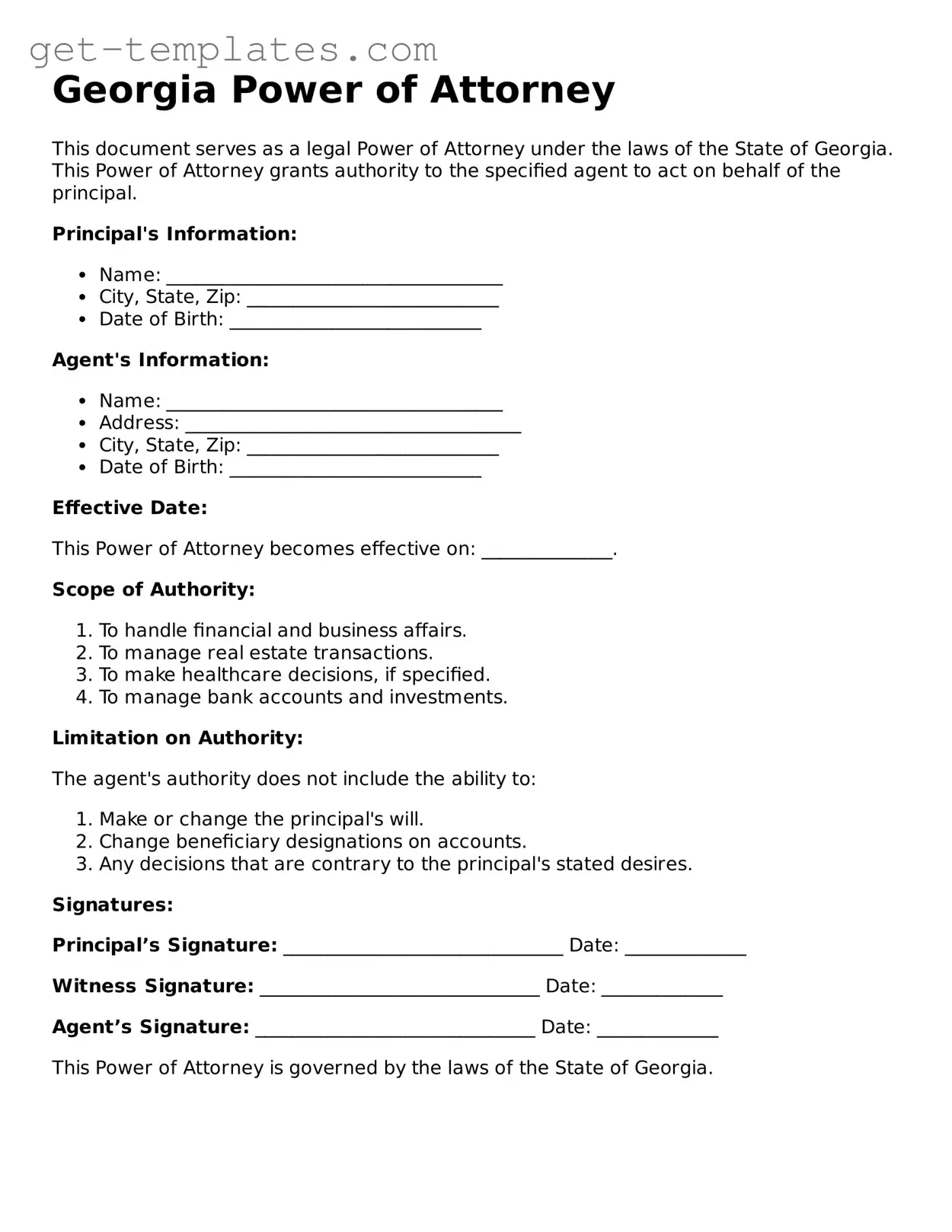What is a Power of Attorney in Georgia?
A Power of Attorney (POA) in Georgia is a legal document that allows one person (the principal) to authorize another person (the agent or attorney-in-fact) to act on their behalf. This can include making decisions related to financial matters, medical care, or other personal affairs. The document must be signed by the principal and, in some cases, witnessed or notarized to be valid.
What types of Power of Attorney are available in Georgia?
In Georgia, there are several types of Power of Attorney:
-
General Power of Attorney:
Grants broad powers to the agent to manage the principal's affairs.
-
Limited Power of Attorney:
Restricts the agent's authority to specific tasks or situations.
-
Durable Power of Attorney:
Remains effective even if the principal becomes incapacitated.
-
Medical Power of Attorney:
Allows the agent to make healthcare decisions for the principal if they are unable to do so.
How do I create a Power of Attorney in Georgia?
To create a Power of Attorney in Georgia, follow these steps:
-
Choose the type of Power of Attorney that suits your needs.
-
Complete the appropriate form, ensuring all necessary information is included.
-
Sign the document in the presence of a notary public or witnesses, as required.
-
Distribute copies of the signed document to your agent and any relevant parties.
Does a Power of Attorney need to be notarized in Georgia?
Yes, in Georgia, a Power of Attorney must be notarized to be valid. The principal must sign the document in front of a notary public. Additionally, if the POA is for real estate transactions, it may require additional witnessing.
Can I revoke a Power of Attorney in Georgia?
A Power of Attorney can be revoked at any time by the principal, as long as they are mentally competent. To revoke the POA, the principal should create a written revocation document and notify the agent and any institutions that were relying on the original Power of Attorney.
What happens if the principal becomes incapacitated?
If the principal becomes incapacitated and has executed a Durable Power of Attorney, the agent can continue to act on their behalf. If the POA is not durable, it becomes ineffective upon the principal's incapacitation.
Are there any limitations on what an agent can do under a Power of Attorney?
Yes, there are limitations. The agent must act in the best interest of the principal and cannot use the authority for personal gain. Certain actions, such as making a will or changing beneficiaries on a life insurance policy, may not be permitted unless explicitly stated in the POA document.
Power of Attorney forms can be found online through legal websites, state government resources, or by consulting with an attorney. It is important to use a form that complies with Georgia laws to ensure its validity.

